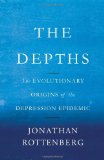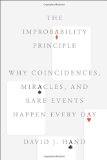February 20, 2014

From the Tree to the Labyrinth: Historical Studies on the Sign and Interpretation by Umberto Eco (Harvard University Press, 2014)
(kindle ed.), (amazon.co.uk), (UK kindle ed.)
Book description from the publisher:
The way we create and organize knowledge is the theme of From the Tree to the Labyrinth, a major achievement by one of the world’s foremost thinkers on language and interpretation. Umberto Eco begins by arguing that our familiar system of classification by genus and species derives from the Neo-Platonist idea of a “tree of knowledge.” He then moves to the idea of the dictionary, which–like a tree whose trunk anchors a great hierarchy of branching categories–orders knowledge into a matrix of definitions. In Eco’s view, though, the dictionary is too rigid: it turns knowledge into a closed system. A more flexible organizational scheme is the encyclopedia, which–instead of resembling a tree with finite branches–offers a labyrinth of never-ending pathways. Presenting knowledge as a network of interlinked relationships, the encyclopedia sacrifices humankind’s dream of possessing absolute knowledge, but in compensation we gain the freedom to pursue an infinity of new connections and meanings.
Moving effortlessly from analyses of Aristotle and James Joyce to the philosophical difficulties of telling dogs from cats, Eco demonstrates time and again his inimitable ability to bridge ancient, medieval, and modern modes of thought. From the Tree to the Labyrinth is a brilliant illustration of Eco’s longstanding argument that problems of interpretation can be solved only in historical context.
See also: Author’s website, Book excerpt, Table of Contents
Comments (0)
- culture,new books
February 19, 2014

The Depths: The Evolutionary Origins of the Depression Epidemic by Jonathan Rottenberg (Basic Books, 2014)
(kindle ed.), (amazon.co.uk), (UK kindle ed.)
Book description from the publisher:
Nearly every depressed person is assured by doctors, well-meaning friends and family, the media, and ubiquitous advertisements that the underlying problem is a chemical imbalance. Such a simple defect should be fixable, yet despite all of the resources that have been devoted to finding a pharmacological solution, depression remains stubbornly widespread. Why are we losing this fight?
In this humane and illuminating challenge to defect models of depression, psychologist Jonathan Rottenberg argues that depression is a particularly severe outgrowth of our natural capacity for emotion. In other words, it is a low mood gone haywire. Drawing on recent developments in the science of mood—and his own harrowing depressive experience as a young adult—Rottenberg explains depression in evolutionary terms, showing how its dark pull arises from adaptations that evolved to help our ancestors ensure their survival. Moods, high and low, evolved to compel us to more efficiently pursue rewards. While this worked for our ancestors, our modern environment—in which daily survival is no longer a sole focus—makes it all too easy for low mood to slide into severe, long-lasting depression.
Weaving together experimental and epidemiological research, clinical observations, and the voices of individuals who have struggled with depression, The Depths offers a bold new account of why depression endures—and makes a strong case for de-stigmatizing this increasingly common condition. In so doing, Rottenberg offers hope in the form of his own and other patients’ recovery, and points the way towards new paths for treatment.
Google Books preview:
See also: Author’s blog at Psychology Today
Comments (7)
- new books,psychology
February 18, 2014

Free Will (MIT Press Essential Knowledge) by Mark Balaguer (MIT Press, 2014)
(kindle ed.), (amazon.co.uk), (UK kindle ed.)
Book description from the publisher:
In our daily life, it really seems as though we have free will, that what we do from moment to moment is determined by conscious decisions that we freely make. You get up from the couch, you go for a walk, you eat chocolate ice cream. It seems that we’re in control of actions like these; if we are, then we have free will. But in recent years, some have argued that free will is an illusion. The neuroscientist (and best-selling author) Sam Harris and the late Harvard psychologist Daniel Wegner, for example, claim that certain scientific findings disprove free will. In this engaging and accessible volume in the Essential Knowledge series, the philosopher Mark Balaguer examines the various arguments and experiments that have been cited to support the claim that human beings don’t have free will. He finds them to be overstated and misguided.
Balaguer discusses determinism, the view that every physical event is predetermined, or completely caused by prior events. He describes several philosophical and scientific arguments against free will, including one based on Benjamin Libet’s famous neuroscientific experiments, which allegedly show that our conscious decisions are caused by neural events that occur before we choose. He considers various religious and philosophical views, including the philosophical pro-free-will view known as compatibilism. Balaguer concludes that the anti-free-will arguments put forward by philosophers, psychologists, and neuroscientists simply don’t work. They don’t provide any good reason to doubt the existence of free will. But, he cautions, this doesn’t necessarily mean that we have free will. The question of whether we have free will remains an open one; we simply don’t know enough about the brain to answer it definitively.
See also: Author’s webpage, MIT Press Essential Knowledge series at Amazon
Comments (0)
- new books
February 14, 2014

The Improbability Principle: Why Coincidences, Miracles, and Rare Events Happen Every Day by David J. Hand (Scientific American/Farrar, Straus & Giroux, 2014)
(kindle ed.), (amazon.co.uk), (UK kindle ed.)
Book description from the publishers:
In The Improbability Principle, the renowned statistician David J. Hand argues that extraordinarily rare events are anything but. In fact, they’re commonplace. Not only that, we should all expect to experience a miracle roughly once every month.
But Hand is no believer in superstitions, prophecies, or the paranormal. His definition of “miracle” is thoroughly rational. No mystical or supernatural explanation is necessary to understand why someone is lucky enough to win the lottery twice, or is destined to be hit by lightning three times and still survive. All we need, Hand argues, is a firm grounding in a powerful set of laws: the laws of inevitability, of truly large numbers, of selection, of the probability lever, and of near enough.
Together, these constitute Hand’s groundbreaking Improbability Principle. And together, they explain why we should not be so surprised to bump into a friend in a foreign country, or to come across the same unfamiliar word four times in one day. Hand wrestles with seemingly less explicable questions as well: what the Bible and Shakespeare have in common, why financial crashes are par for the course, and why lightning does strike the same place (and the same person) twice. Along the way, he teaches us how to use the Improbability Principle in our own lives—including how to cash in at a casino and how to recognize when a medicine is truly effective.
An irresistible adventure into the laws behind “chance” moments and a trusty guide for understanding the world and universe we live in, The Improbability Principle will transform how you think about serendipity and luck, whether it’s in the world of business and finance or you’re merely sitting in your backyard, tossing a ball into the air and wondering where it will land.
Google Books preview:
Comments (0)
- new books,reality
February 13, 2014

The News: A User’s Manual by Alain de Botton (Pantheon, 2014)
(kindle ed.), (amazon.co.uk), (UK kindle ed.)
Book description from the publisher:
The news is everywhere. We can’t stop constantly checking it on our computer screens, but what is this doing to our minds?
We are never really taught how to make sense of the torrent of news we face every day, writes Alain de Botton (author of the best-selling The Architecture of Happiness), but this has a huge impact on our sense of what matters and of how we should lead our lives. In his dazzling new book, de Botton takes twenty-five archetypal news stories—including an airplane crash, a murder, a celebrity interview and a political scandal—and submits them to unusually intense analysis with a view to helping us navigate our news-soaked age. He raises such questions as Why are disaster stories often so uplifting? What makes the love lives of celebrities so interesting? Why do we enjoy watching politicians being brought down? Why are upheavals in far-off lands often so boring?
In The News: A User’s Manual, de Botton has written the ultimate guide for our frenzied era, certain to bring calm, understanding and a measure of sanity to our daily (perhaps even hourly) interactions with the news machine.
Google Books preview:
Comments (0)
- culture,psychology,Uncategorized







